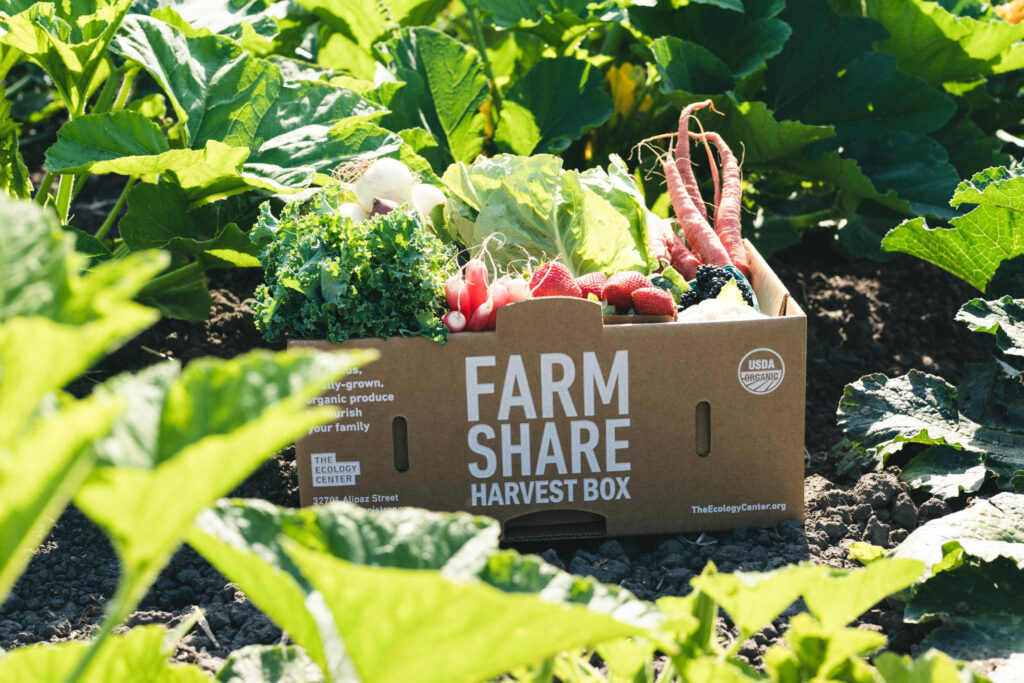We live in a culture that often prizes convenience above all else. When it comes to food, corporations have created a system where produce can be cheaply grown and prematurely harvested, shipped across the world, and delivered to your front door because you placed an order on your phone.
The true cost of this convenience, however, is much greater than what you see on your in-app receipt. Industrial farms can provide cheap food, but their farming techniques devastate the ecology of the land. Produce can be shipped around the world, but doing so leaves the atmosphere with an enormous amount of additional carbon and you with less nutritious, less delicious food.
When it comes to food, we believe it’s more important to have access to the right produce at the right time than all produce, all the time. Each season brings a unique cycle of nourishment to the soil, as subtle changes in temperature, weather, and organic matter enrich the land with specific nutrients and beneficial bacteria. By eating local, seasonal produce, you are not only enjoying the freshest flavors available to you, but you are also investing in the stewardship of the land and helping to transform our food system.
There are several advantages to eating seasonally:
Nutrition
Seasonal eating is the best way to get the most nourishment from the food on your plate. Every ingredient we grow, from springtime asparagus to winter squash, contains the highest possible concentration of nutrients during its peak season. Better still, each season’s harvest is tailor-made to suit our changing needs throughout the year–cool, watery foods like strawberries, tomatoes and cucumbers sustain us through the heat of summer, while hearty grains, legumes and root vegetables ground us in the windy cold of winter. It’s truly amazing to reflect on how the land provides us with the vitamins and minerals needed to balance and replenish our bodies according to their seasonal needs.
Flavor
It’s not a coincidence that peak nutrition also means peak flavor. The same compounds that give a vegetable its health benefits also supply its signature taste and beauty. If your family claims to hate broccoli, buy some sweet purple Santee broccoli from a local farm, roast it with some olive oil, garlic and salt, and see how quickly they change their minds!
Ecology
While capitalism has taught us to measure a food’s value by how expensive or scarce it is, seasonality means that the most flavorful and nutritious vegetables are also the most abundant. It’s one of those “aha!” moments that make every bite a little more delicious.
All three of these advantages are why chefs tend to be the first customers in line at their local farmers’ market. Seasonal food offers not only the highest quality, but also the best value, for their dollar. Chef David Pratt, our Community Table Accord partner, sums it up like this: “If everyone got their food from a local source, we’d be better off. We’d be supporting local economies, we’d be more conscious of the energy we’re spending and the waste we’re creating, and we’d be getting better ingredients.”
Transforming Culture Begins On Your Plate
Eating seasonally is the most important step you and your family can take in transforming our food culture away from one of convenience, and toward one of healthy people and planet. Rather than craving what doesn’t grow naturally, eating seasonally teaches us to savor what the earth provides for us in its time. As more of us make seasonal eating part of our lifestyle, the demand for out-of-season crops will shift back to the way nature intended. To get the best seasonal flavors that our bioregion has to offer each and every week, click here to subscribe to our Harvest Box.








